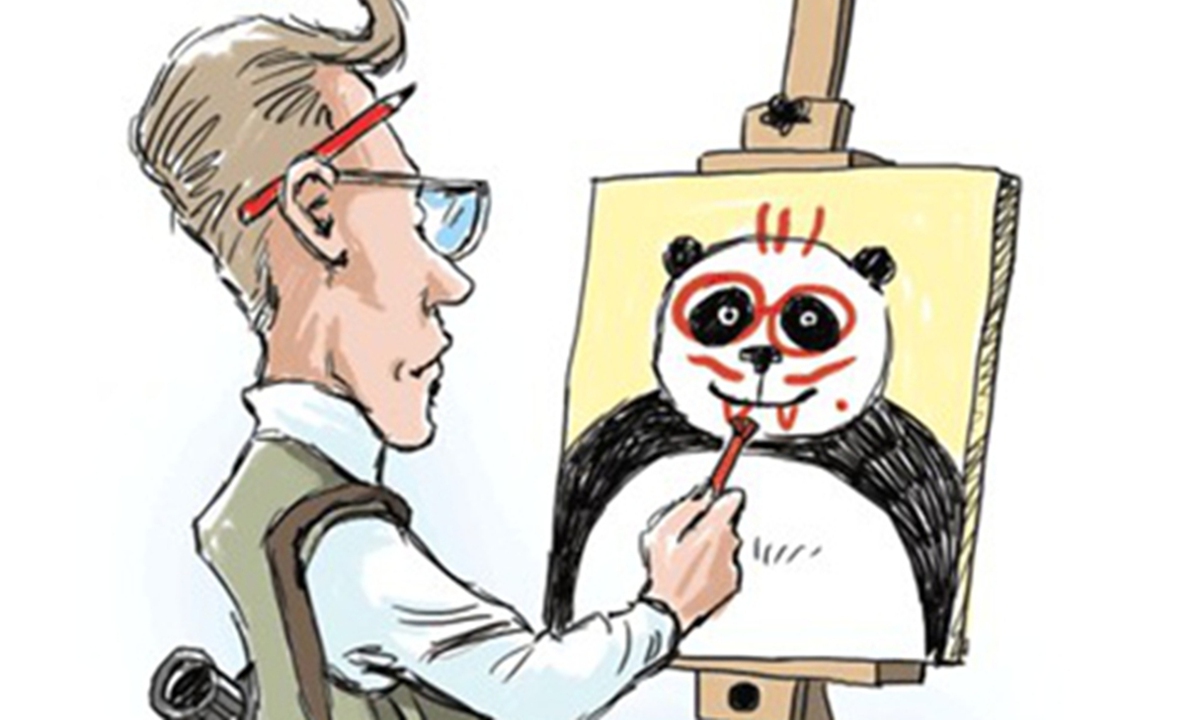
Illustration: Liu Rui/GT
There is a kind of people in the West who advertise themselves as scientists or scholars, but in reality, they act more like "politicians," hoping to gain fame and attention by spreading rumors to discredit China.
The Guardian reported Wednesday that David Curtis, from University College London's Genetics Institute, also editor-in-chief of the Annals of Human Genetics, resigned from the journal after his publisher vetoed a call to boycott Chinese science in protest at "Beijing's treatment of Uygurs and other Muslim minorities in Xinjiang Uygur Autonomous Region," a claim which has been firmly denied by the Chinese government and is essentially lies cooked up by Western politicians.
Unsurprisingly, this absurd request was turned down. Five academic journals, including the Lancet, the BMJ and the Annals of Human Genetics that Curtis worked for, refused to publish the article. Their refusal is justified and reasonable, and defends academic freedom, scientific spirit and justice.
The accusation made by Curtis and his ilk against the so-called human rights violations in Xinjiang is common rhetoric in the West. They accuse Chinese medical and scientific staff of being accomplices in DNA collection, forced birth control and harvesting of organs from detainees in Xinjiang, which are all rumors that have been refuted by China many times.
The accusations by Curtis do not provide any new evidence, but instead rely on reports from anti-China think tanks and institutions such as the Australian Strategic Policy Institute (ASPI) and Human Rights Watch, which have long been proven to be rumor mills.
In 2020, the ASPI published a report funded by the US State Department claiming that researchers had found about 380 "concentration camps" in Xinjiang, and that China was still expanding "concentration camps" based on new "satellite images." However, Chinese netizens used Baidu and Google maps to compare the sites in the report and found that the areas which the report claimed to be "concentration camps" are actually bureaus for retired officers, industrial and commercial information departments, and middle and primary schools. There are countless such examples, but Curtis and his friends only view the reports from lying institutions as magic weapons that can be used to throw mud at China.
"They are lunatics," Fudan University Professor Shen Yi told the Global Times on Friday. "They should not be called scholars or researchers, but are more like politicians disguised as researchers. They understand the world through a lens that does not match the scientific spirit they tout. What they are doing is political manipulation, which has nothing to do with science or independent investigations," Shen said.
Curtis also said his resignation is an issue of freedom of speech in the face of the science community's increasing dependence on China. But did he ever consider the speech and academic freedom of medical researchers from China when he put forward the ridiculous suggestion of rejecting submissions from Chinese academics?
It was the right thing to do for journals such as the Lancet to reject the piece co-authored by Curtis that calls for a boycott against China. Those journals know science and academic freedom shouldn't be taken hostage by politics.
Since the outbreak of the COVID-19 pandemic, the research results of Chinese medical and scientific professionals have been published in international authoritative journals including Lancet many times, providing valuable references for researchers around the world to better understand the virus and symptoms of the pandemic. They have also shared China's successful anti-epidemic experiences. At a time when the pandemic is still raging, pseudo-scholars like Curtis want to cut off normal academic exchanges. In the name of caring about human rights in Xinjiang, they show no concern of the human rights of COVID-19 patients. They have politicized science to satisfy their shallow political vanity.
The author is a reporter with the Global Times. opinion@globaltimes.com.cn




